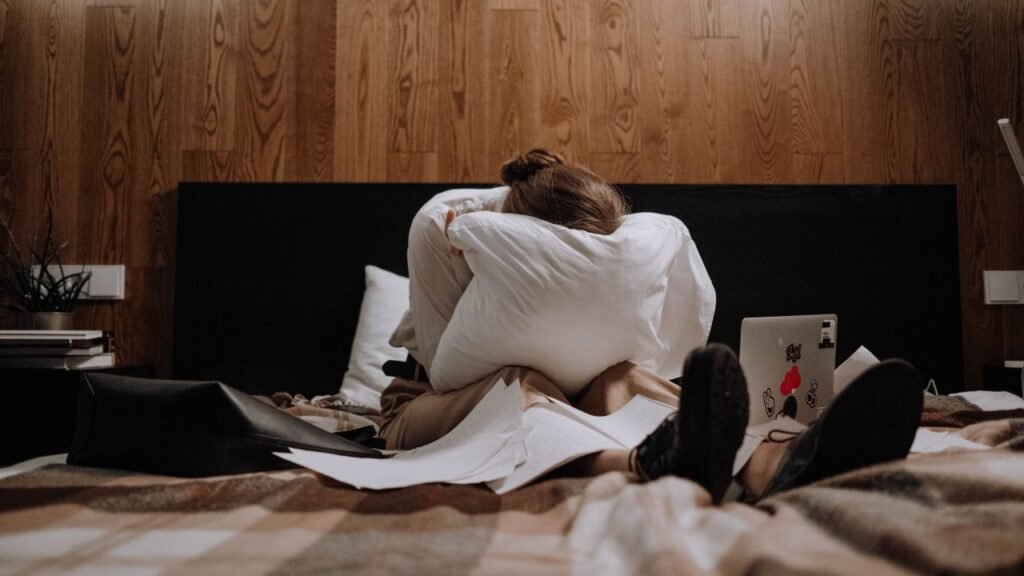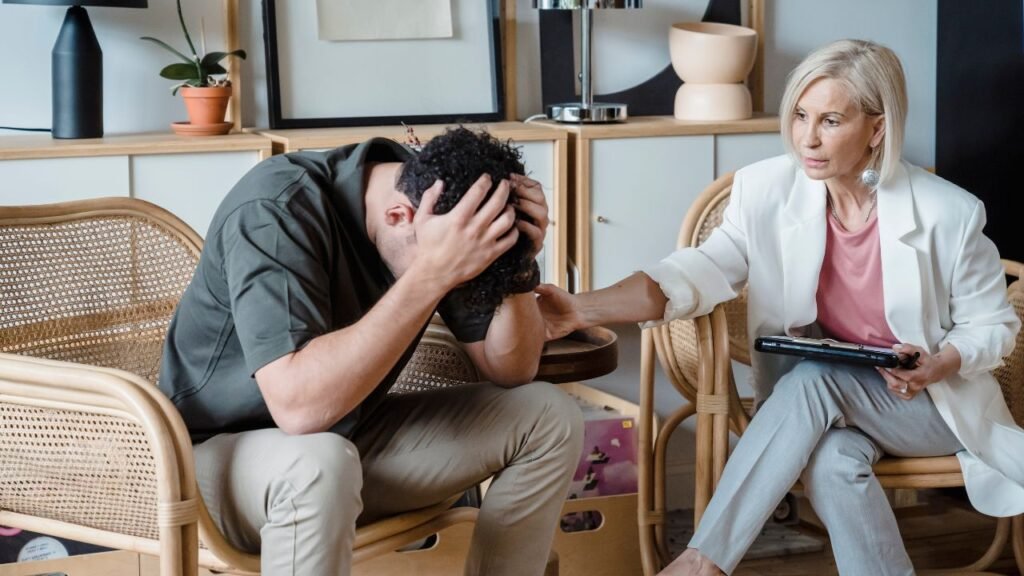Depression is a complex mental health disorder involving millions of people across the world and can never be reduced to mere sadness. It is able to cause very serious consequences in the field of mental health and influence all fields of a person’s life. It is important to identify the symptoms of depression at the earliest since intervention at that stage can significantly improve the outcome.
Symptoms of Depression: Various Types

Depression is a very complicated medical condition, and the symptoms of the depression would be experienced by each in a very uniquely different way. It is very necessary that one understands this spectrum as it would help in mandating the fact that this disorder requires treatment that is supremely individualistic. Given below are some of the emotional, physical, and behavioral changes that characterize symptoms of depression in an individual.
Emotional and Psychological Symptoms of Depression
Emotional depression may display in a great number of differences between different people suffering from the disorder, in mild, and severe forms. Some people only feel mildly depressed by depression symptoms that always are more or less in the background but still are impairing their overall quality of life, while for others, the depression symptoms become very severe, making them feel extremely sad or empty.
Following is the Emotional and Psychological Symptoms of Depression:
- Persistent Sadness or Emptiness: the condition of being overwhelmingly sad, empty, or hopeless and considerable interference in day-to-day activities since it is not leaving one feels.
- Loss of Interest or Pleasure: Much of the interest or pleasure in almost all or all activities the person previously found enjoyment from is diminished.
- Feelings of Hopelessness or Pessimism: Pessimism in extreme forms when a person develops a gloomy attitude toward life with the mellowed perception that nothing is going to get better.
- Irritability and Frustration: Excessive and often atypical irritation, annoyance, or anger over small issues.
- feelings of worthlessness or guilt: Excessive self-reproach, feelings of worthlessness and inordinate remorse over past failures.
- Trouble Concentrating and Making Decisions: This leads to indecisiveness and, in the end, is not productive because of trouble with details and remembering the details.
- Worthlessness or Guilt: He applies excess self-criticism, worthlessness, and shame associated with past failures.
- Difficulty Concentrating and Making Decisions: These dispositions result in an inability to concentrate, indecisiveness, and low rememberability of details, making one a non-achiever, hence unproductive in life.
- Anxiety or Restlessness: May feel something edgy or restless or can’t sit still on account of anxiety.
- Feelings of Isolation or withdrawal: Not wanting to be with friends, family, or in social situations and preferring to be alone can increase feelings of loneliness and isolation.
- Indifference: Numb emotionally and not caring about anything nor anyone.
- Self-loathing: An utter detestation of the self; it can also be equated as self-hate. This is mostly accompanied but feelings of guilt and inadequacy.
Physical Symptoms of Depression
While everybody thinks of depression as an emotional disorder, it also manifests in physical ways that are sometime overlooked: apart from increasing depression, these physical symptoms contribute to the difficulty of day-to-day functioning. So it becomes very essential to know About such symptoms so that the proper detection and treatment of the depression problem can be done.
Some of the physical symptoms of the disorder that one garner through with debatable endurance
- Fatigue and tiredness: One feels much fatigued in that even after relaxing, they constantly feel bushed. Besides, the smallest of the task always becomes a bullock to do.
- Changes in the pattern of sleep: It may seem as if sleep is too much or too few, and both are dangerous to health in general and tend to precipitate depression more onwards.
- Change in appetite and weight: A depressed individual may be overeating, or under-eating, thus eating excessive amounts, leading to excessive weight gain, or stop eating totally, therefore losing excessive weight; whatever happens, this can be a manifestation of trying to relieve emotional pain.
- Body symptoms that have no solid ground: These are pretty common but perhaps the most common depression; back pain, muscle pains, and joint pains; unexplained headache but just lasts and lasts regardless of treatment;
- Disturbance in digestion: constipation, diarrhea, dyspepsia, and nausea can present and their medicine even gives them relief.
- Fatigue or lethargy: Energy level drops significantly, and daily activities seem like a chore.
- This is going to negatively affect their personal and professional life. These patients will either
- Agitation or slowing of movements: Patients either feel restless or have a major slowdown in action and mental change.
- Physical restlessness or slowness: The most marked change may affect changes in activity levels, coming up as either an inability or an extreme end ability to sit still or slow speech and movement.
- Excessive Crying: Inordinate crying or crying without a stated reason.
- Unexplained Physical Symptoms: Unexplained physical symptoms such as headaches, backaches, aching muscles, and stomachaches are on the rise and seem to be without any apparent physical cause.
The following are the Behavioral Changes Associated with Depression
- Social withdrawal: A marked decrease of interest in previously enjoyed activities or social interactions, leading to isolation.
- Occupational or educational performance: Decrease of output and performance often marks such disorders, since most people who are depressed want to start projects but are not interested in finishing them.
- Substance use: Increased substance abuse through drugs or alcohol as a form of self medication and escape from the state of depression.
- Apathy about personal care: Lack of interest in preparing food or eating, personal washing, and other personal-care-related activities.
- Sleep disturbances: Either insomnia or oversleeping, in either case enhancing the severe depression.
- Irritability and Anger: Compared to his or her normal nature small disagreements spark rage or resentment.
- Reckless behavior: Increasingly reckless or self-destructive behavior, possibly as a way to counter stress or as a tool to self-punishment.
- Indecisiveness: Lack of concentration and low self esteem may develop indecisiveness or disables the ability to make simple decisions.
- Psychomotor retardation: The negative thinking, the words in sentences, and body movements are conspicuously slow and indicative of extreme depression.
- Prolongation of crying: The high emotional feeling may make one to cry frequently at times due to no reason clearly explainable.
Getting Assistance on Management of Depression

Depression is so complicated so knowing where and when you can get treatment is an important point, more so depression has recognizable signs and symptoms. Knowing the available depression treatments options will give you or your loved one hope.
Professional Help and Therapies
Professional help can be in the form of many therapies. An illustration for the treatment of Depression is CBT, which is effective, well-liked, and operates by changing the way of thinking from a negative outlook to a more realistic positive perspective of life, on the other hand IPT is the one that enhances an individual’s communication and personal relationships that can affect the mood and person’s sadness levels.
Medication
Medications are another standby treatment for the condition. Antidepressants can help in equalizing the brain chemicals, reducing intense physical and emotional symptoms. As this will take time and adjustments to get the right prescription, discuss possible side effects and treatment time needed with your doctor.
Lifestyle Changes and Support Systems
Professional treatments alone are not adequate if these are not combined with lifestyle changes in the management of depression. Regular exercise, healthy diet, good sleep-with no alcohol or drugs-can exponentially alleviate symptoms. Friends, family, and support groups help sustain emotional support in getting well again.
Alternative Treatments
Mindfulness and meditation are practices that have been variably suggested to hold good potential for the treatment of depressive symptoms, particularly in reducing the risk of relapse. Such methods cannot replace medical care but could very well complement conventional therapy to provide a holistic approach toward the management of mental health.
Conclusion
Finally, come to a realization: depression is individual, yet universally understood. To seek help, to accept help, and to look into other treatment options is the first step to healing. Development and growth do come about, even on this really challenging path at times.


